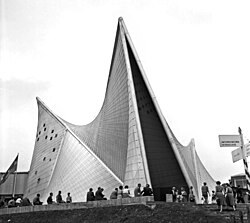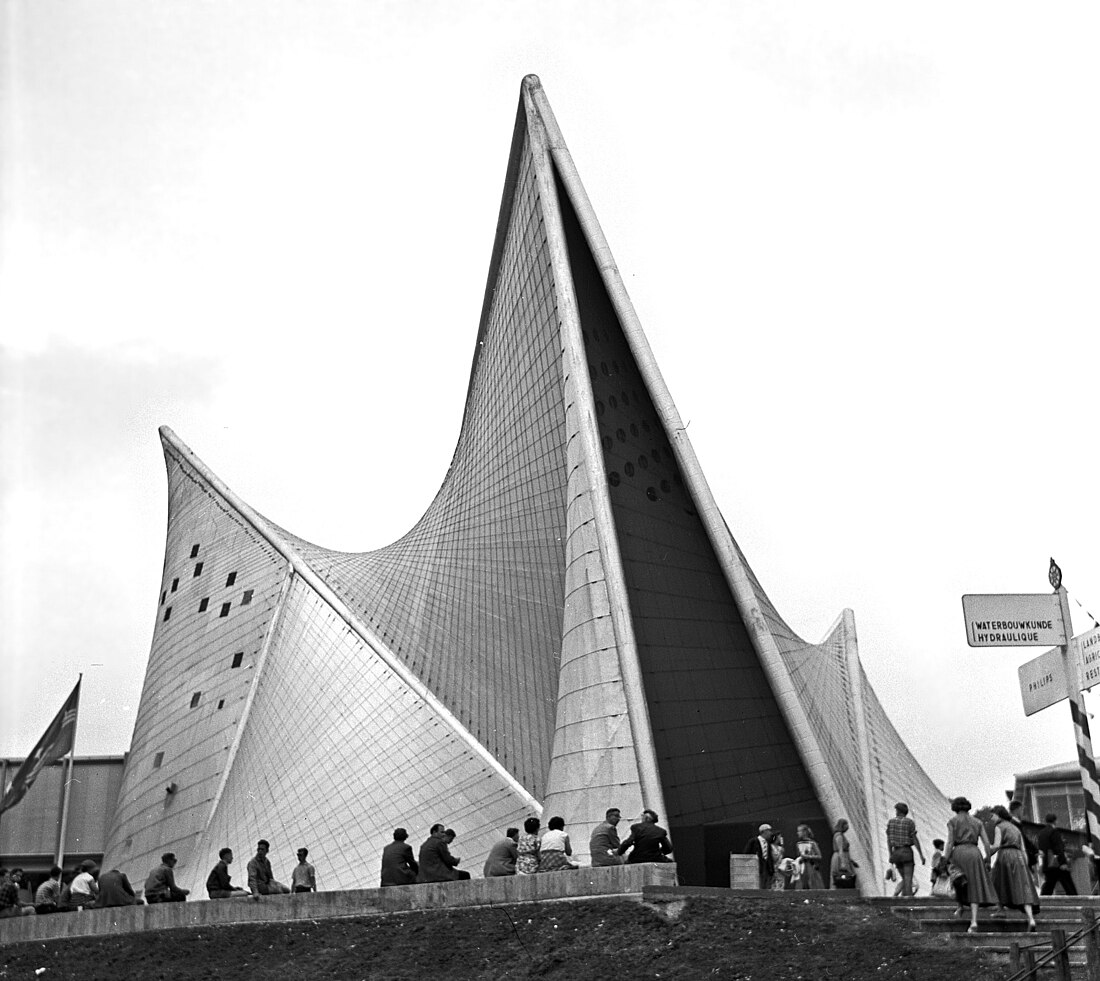Philips Pavilion
Demolished building in Brussels, Belgium From Wikipedia, the free encyclopedia
The Philips Pavilion (French: Pavillon Philips; Dutch: Philipspaviljoen) was a modernist pavilion in Brussels, Belgium, constructed for the 1958 Brussels World's Fair (Expo 58). Commissioned by electronics manufacturer Philips and designed by the office of Le Corbusier, it was built to house a multimedia spectacle that celebrated postwar technological progress. Because Le Corbusier was busy with the planning of Chandigarh, much of the project management was assigned to Iannis Xenakis, who was also an experimental composer and was influenced in the design by his composition Metastaseis.
This article includes a list of references, related reading, or external links, but its sources remain unclear because it lacks inline citations. (July 2020) |
| Philips Pavilion | |
|---|---|
 The Philips Pavilion during the 1958 Brussels World's Fair (Expo 58) | |
 | |
| General information | |
| Type | Pavilion |
| Architectural style | Modernism |
| Town or city | 1020 Laeken, City of Brussels, Brussels-Capital Region |
| Country | Belgium |
| Opened | 1958 |
| Demolished | 1959 |
| Technical details | |
| Material | Reinforced concrete |
| Design and construction | |
| Architect(s) | Iannis Xenakis |
| Architecture firm | Le Corbusier |
The reinforced concrete pavilion is a cluster of nine hyperbolic paraboloids in which Edgard Varèse's Poème électronique was spatialized by sound projectionists using telephone dials. The speakers were set into the walls, which were coated in asbestos, giving a textured look to the walls. Varèse drew up a detailed spatialization scheme for the entire piece, which made great use of the pavilion's physical layout, especially its height. The asbestos hardened the walls, which created a cavernous acoustic. As audiences entered and exited the building, Xenakis's musique concrète composition Concret PH was heard. The building was demolished on 30 January 1959.
The European Union funded a virtual recreation of the Philips Pavilion, which was chaired by Vincenzo Lombardi from the University of Turin.
Arseniusz Romanowicz's Warszawa Ochota train station in Poland is supposedly inspired by the Philips Pavilion.
Construction
- Floor plan
- During construction (13 November 1957)
- Near opening (20 March 1958)
References
Further reading
External links
Wikiwand - on
Seamless Wikipedia browsing. On steroids.



